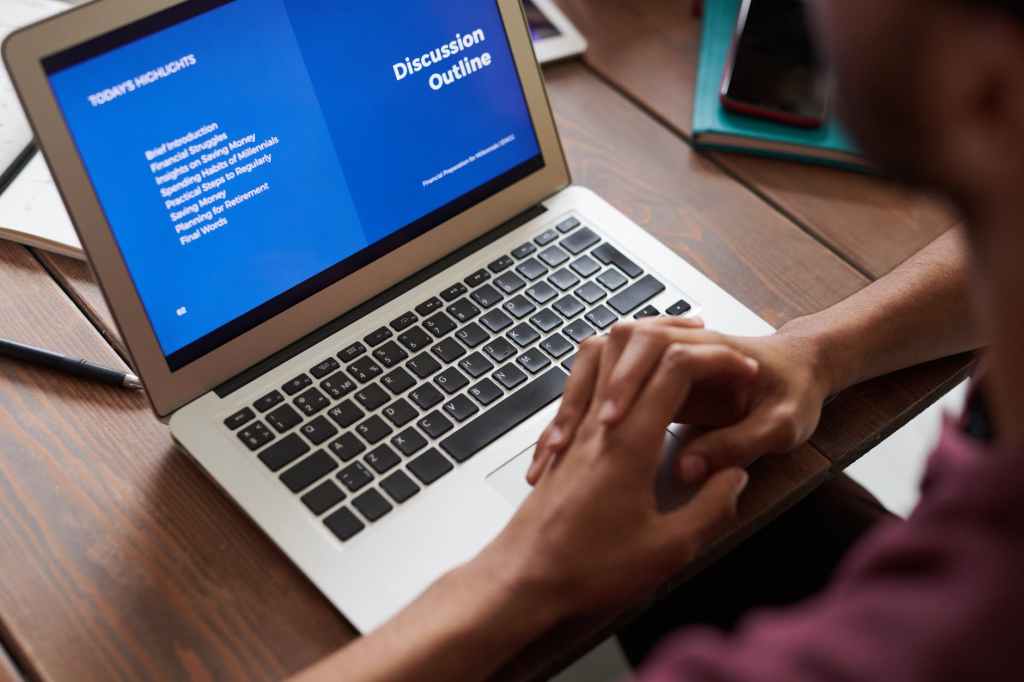
Is your professor using Zoom, WebX, or another online platform to teach your course live? Here are some best practices for presenting yourself professionally and having the best learning experience in your online classroom.
Test out Zoom with your computer before it’s time for class. Many universities give students access to Zoom, WebX, or other online classroom accounts. Set up that account in advance, and practice using it. Make sure that you have your computer set up properly: explore how to mute and unmute your microphone, activate your camera so that you show up in the class on video, raise your hand and use the chat features. Make sure your internet works properly with the platform, and fix any problems you identify before it’s time for class to begin.
Realize that you have a significant problem accessing the course online? Reach out in advance to your professor, your law school’s IT department, or the Dean of Students to identify solutions for those problems as soon as possible to ensure that you maintain access to the course materials and don’t fall behind.
Find a distraction-free environment for taking classes on Zoom or other platforms. It’s important to use these platforms in a distraction-free environment, so that you can focus on what your professor and fellow students are saying. Eliminate background noise in your own environment, such as the TV or music playing, people talking, or a dog barking. If you unmute your microphone to respond to a professor’s question or ask your own question, anything sound in the background will be picked up by your microphone. The best place is a quiet room where you can shut the door and not be interrupted. Don’t forget to tell anyone that you live with not to interrupt you during class time, and silence your phone as well.
Take your online class as seriously as you would if it were held in the law school classroom. Moving a class online doesn’t change your professor’s expectation of the level of preparation you have done in advance, your willingness to participate in class, or your ability to answer questions if you are called on. Engage in your online classes fully and be prepared to get the most out of them possible. Not only will you do better in that particular class and on the exam, but you will carry more knowledge and skills from that course into your other academic and professional endeavors.
Use a computer for live online classes, not a cell phone. Although a one-on-one Zoom/WebX meeting may be effective using the app on your phone, phones are really not useful for online classrooms. A cell phone is just too small to see Powerpoint slides, documents, or websites that your professor may share with the class through the platform, and some features are hard to find and use in the cell phone app.
Make sure you follow appropriate online class etiquette. Sign in with video so classmates and your professor can see you. Keep your microphone muted unless your professor calls on you in class. Dress as you would for an in-person class, considering what you want your professional reputation to be. Be on time entering the class, stay engaged with the class for the entire time, and don’t leave the online classroom until your professor has ended class (unless you’ve told your professor in advance why you have to arrive late or leave early). Show respect for your professor and your fellow classmates by paying attention, just as you would in the physical classroom.
If you follow these best practices, you will set yourself up for getting the most out of those live online classes, and you will demonstrate your professionalism to your professor and fellow students.
